Indigenous Governance Database
Other Papers & Reports
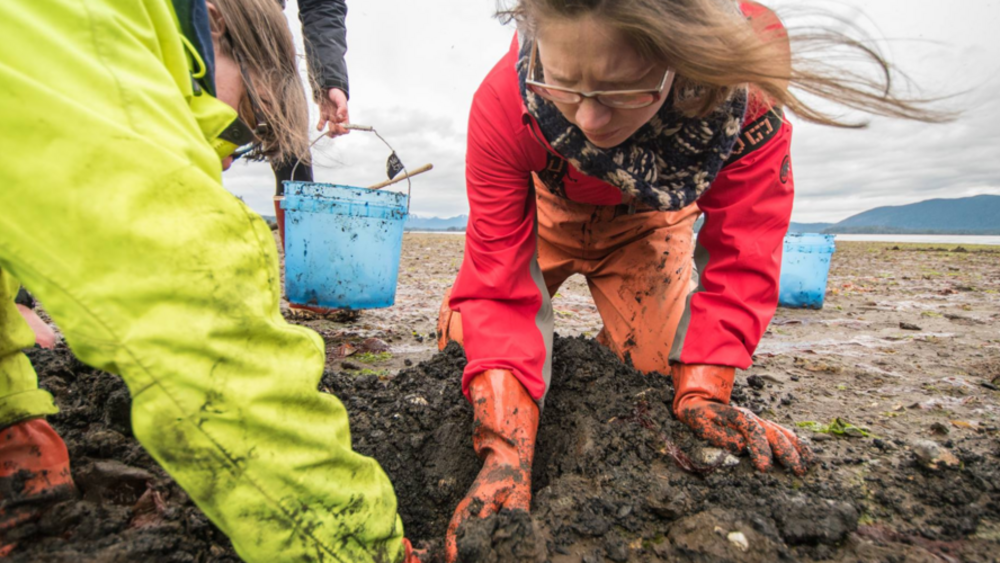
Experts, not Obstacles: Indigenous Conservation Excellence and the Trap of Conservation at any Cost
The twin crises of biodiversity loss and climate change demand action. The question is how best to address these challenges. Driven by a sense of urgency, some call for conservation at any cost, a continuation of the forced separation of Indigenous people from their ancestral lands, waters, and…
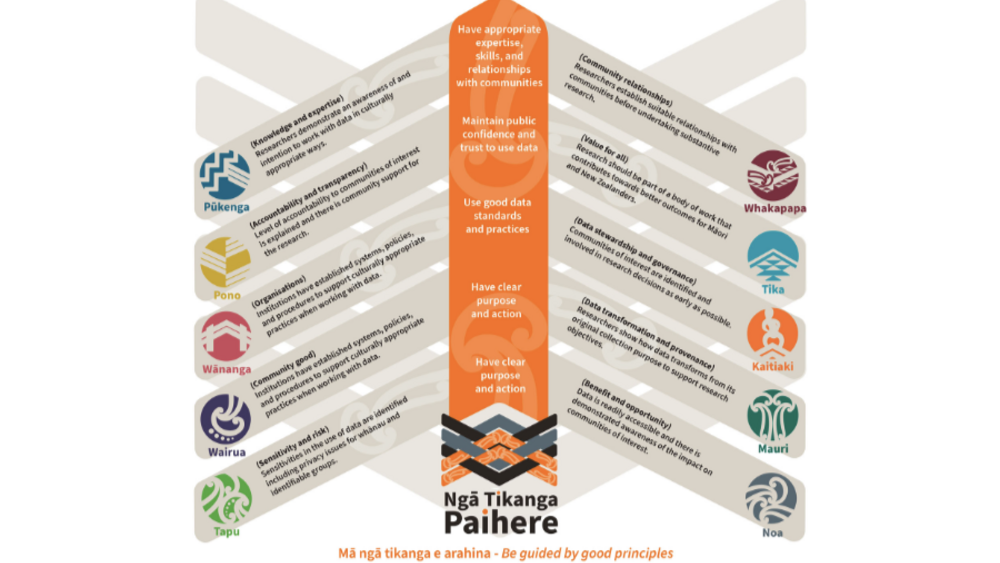
Aligning policy and practice to implement CARE with FAIR through Indigenous Peoples’ protocols
In 2019, members of the Global Indigenous Data Alliance (GIDA) published the CARE Principles (Collective Benefit, Authority to Control, Responsibility, and Ethics) for Indigenous Data Governance (IDGov). CARE has since been referenced, leveraged, and adopted in various ways across disciplines and…
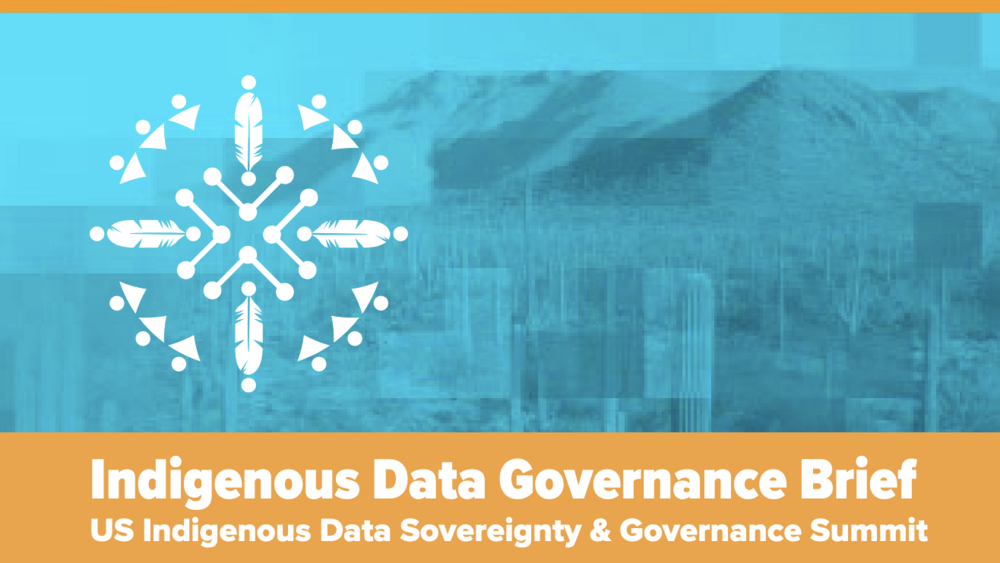
Indigenous Data Governance Brief
This Brief reports on the “Tribal Leaders and Indigenous Scholars Workshop” and the “Action Planning and Forward Thinking Session” held at the Indigenous Data Sovereignty and Governance Summit convened by the US Indigenous Data Sovereignty Network (USIDSN) on the lands of the Pascua Yaqui Tribe and…
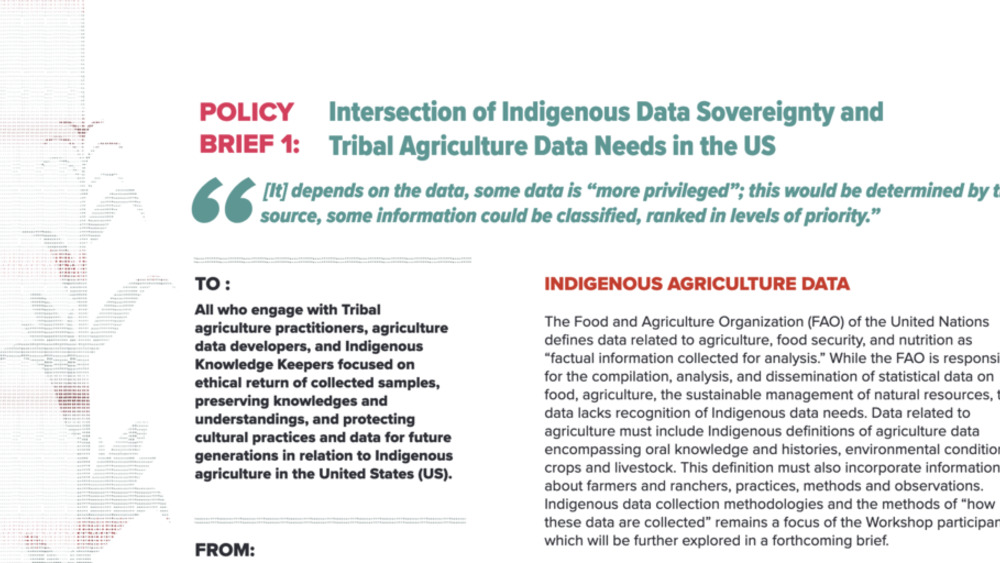
Intersection of Indigenous Data Sovereignty and Tribal Agriculture Data Needs in the US
Indigenous Peoples have always been agriculture data developers and keepers. Acknowledging the importance of Indigenous agriculture data to communities, an eight member Indigenous steering committee representing eight different Tribal Nations throughout the United States (US) designed and…
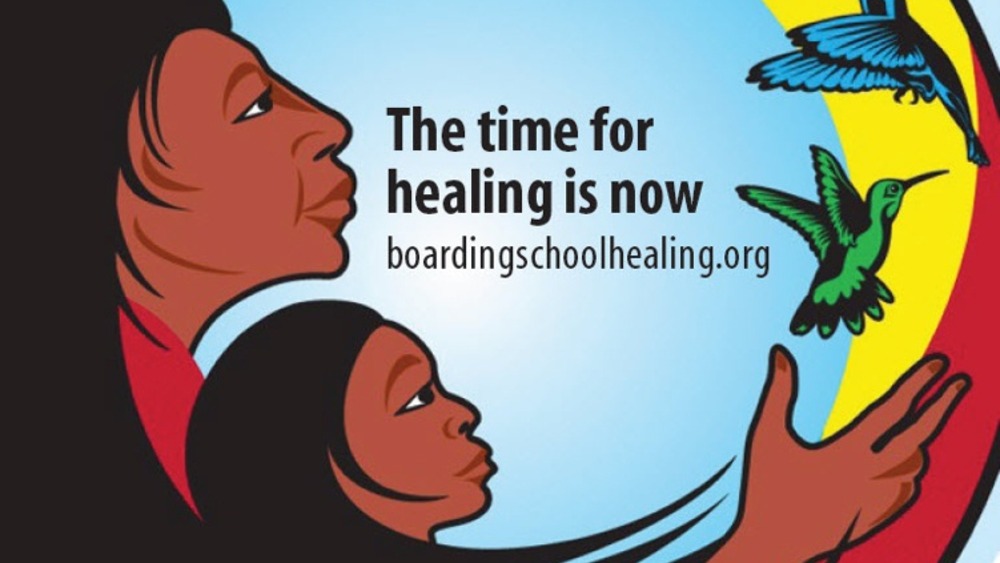
Emergence of a Distinct Legal Identity From the Forces of Assimilation: The Mesquakie Indians and the Fight for Citizenship, 1842-1912
This paper, “Emergence of a Distinct Legal Identity From the Forces of Assimilation: The Mesquakie Indians and the Fight for Citizenship” presents a close examination of the various legal disputes that led to Mesquakie citizenship. Among these disputes are a few cases that intersect with parents’…
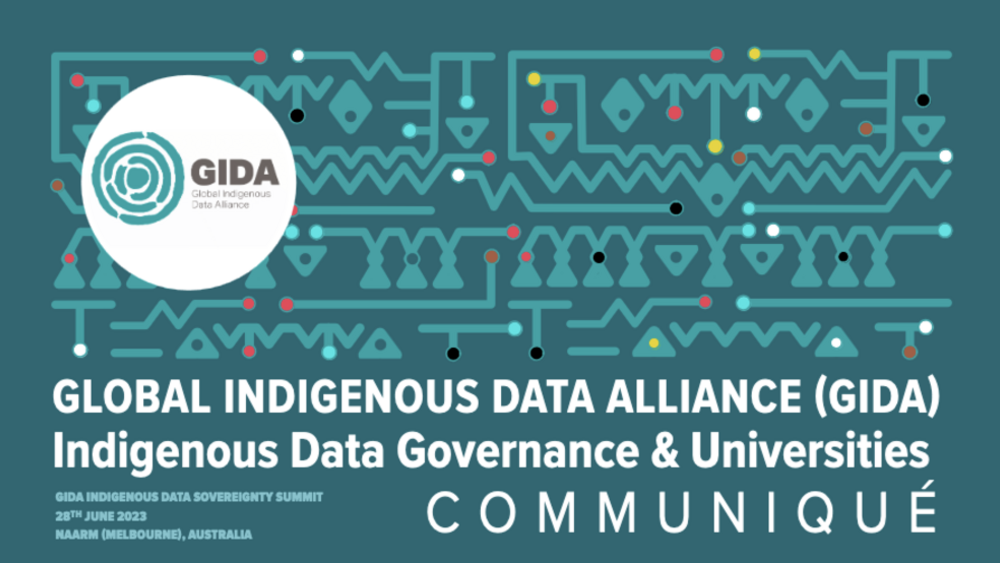
Indigenous Data Governance and Universities Communiqué
Universities create, use, and hold enormous amounts of Indigenous data. These data range from old historical records to contemporary large datasets, including Open Data2 and the data underpinning emerging Artificial Intelligence (AI) Technologies. Indigenous Peoples’ data include information about…
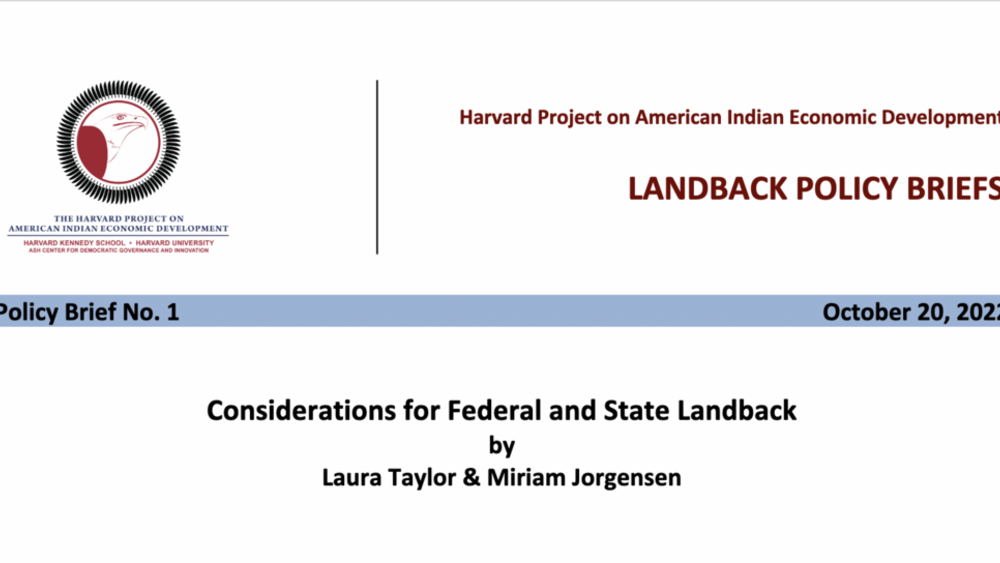
Considerations for Federal and State Landback
This policy brief showcases how geographic information system (GIS) techniques can be used to identify public and/or protected land in relation to current and historic reservation boundaries, and presents maps showcasing the scope of landback opportunities. These lands include federal- or state-…
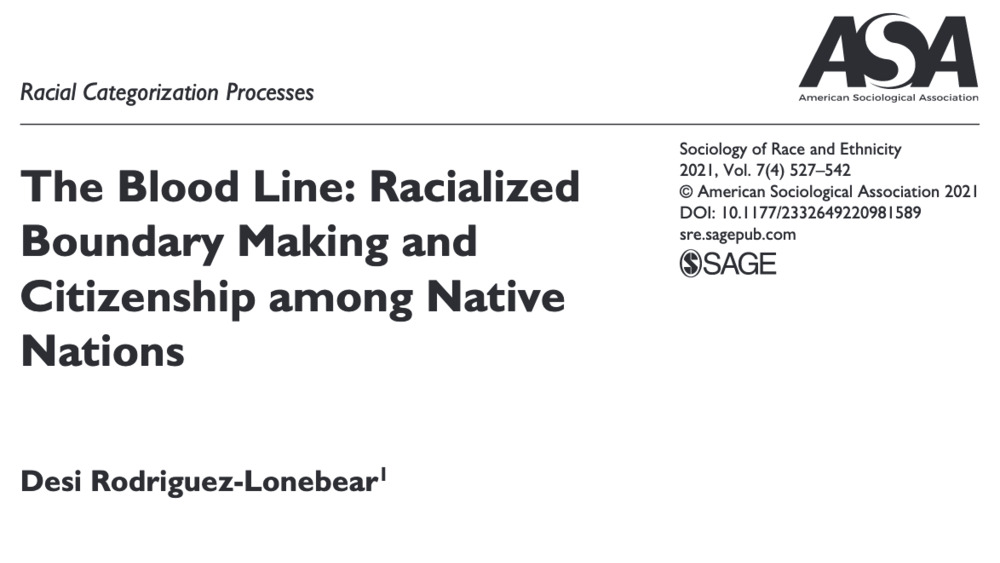
The Blood Line: Racialized Boundary Making and Citizenship among Native Nations
Blood informs a central racial ideology in the United States that has historically been used to racialize many different groups. American Indians (AIs) are the only population in the United States for whom the racial logic of blood remains codified as a means of conferring collective belonging.…
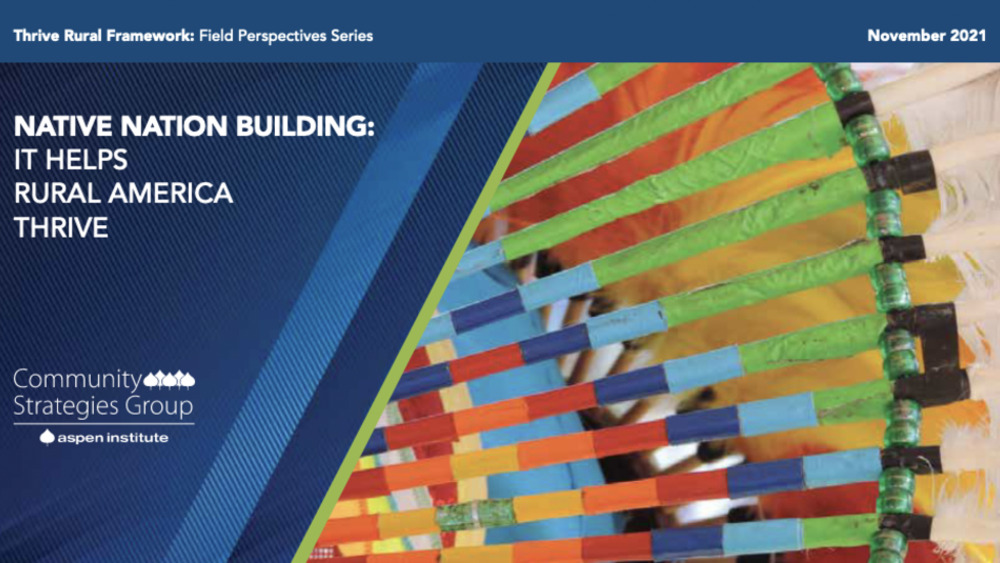
Native Nation Building: It Helps Rural America Thrive
This second paper in the Aspen Institute's Thrive Rural Field Perspectives series shows that when tribes center sovereignty, Indigenous institutions and culture in their development processes they increase the probability of reaching their development goals and can build community wealth that is…
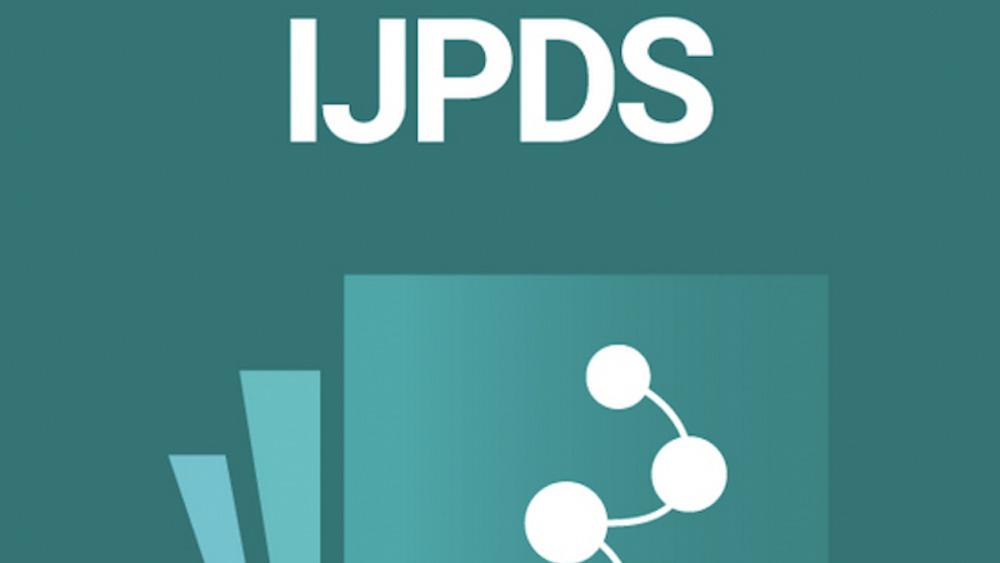
The SEEDS of Indigenous population health data linkage
Globally, the ways that Indigenous data are collected, used, stored, shared, and analyzed are advancing through Indigenous data governance movements. However, these discussions do not always include the increasingly sensitive nature of linking Indigenous population health (IPH) data. During the…
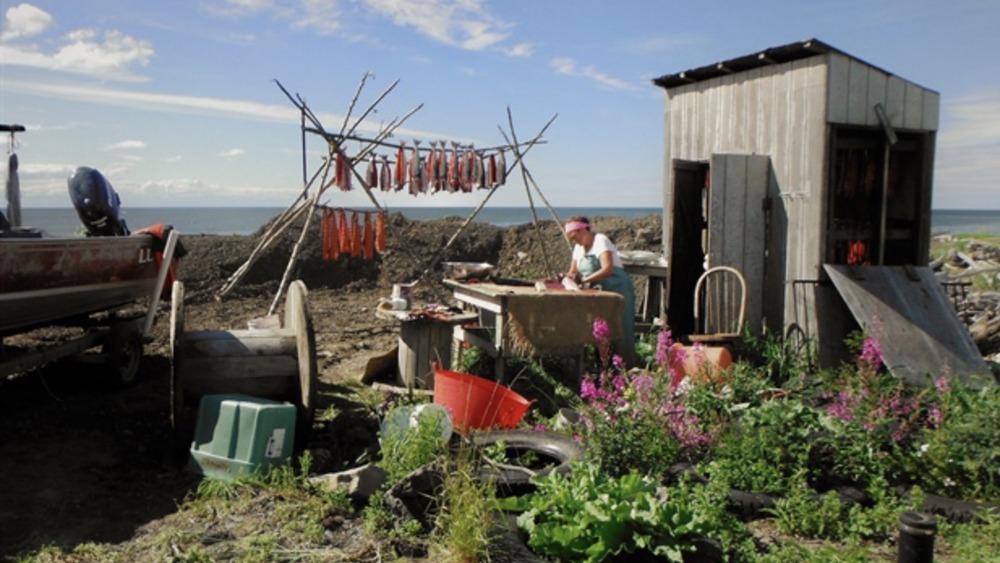
The Impact of COVID-19 on Food Access for Alaska Natives in 2020
This chapter in the NOAA Arctic Report Card 2021 highlights: The COVID-19 pandemic has exacerbated existing challenges for Alaska Natives in accessing traditional and store-bought foods. The strength of Indigenous cultural and economic practices such as food sharing networks helped mitigate…
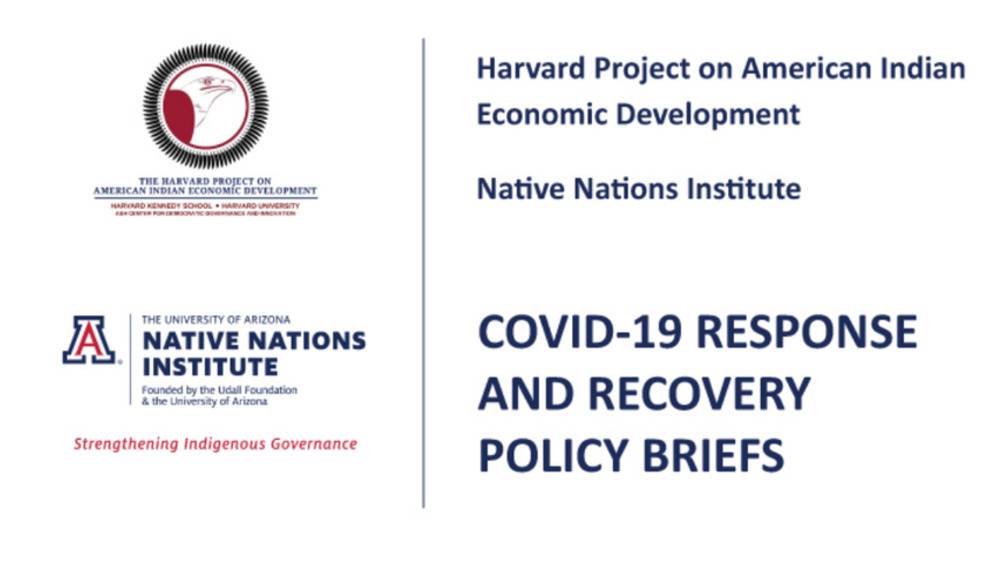
Policy Brief: Assessing the U.S. Treasury Department’s Allocations of Funding for Tribal Governments under the American Rescue Plan Act of 2021
The American Rescue Plan Act of 2021 (“the Act” or “ARPA”) has resulted in the single largest infusion of federal funding for Native America in U.S. history. The core of this funding is $20 billion for the more than 570 federally recognized American Indian and Alaska Native tribal…
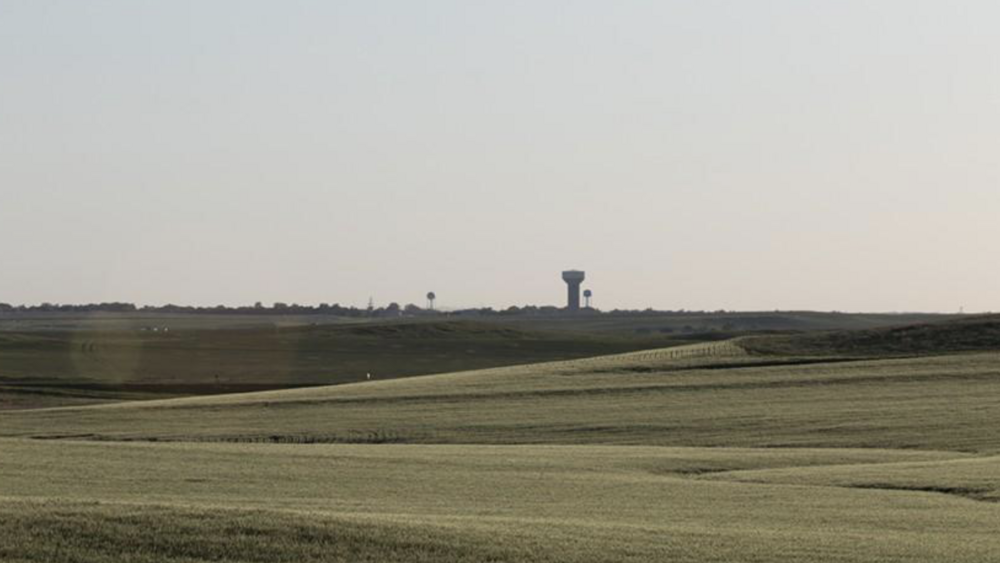
Bankshot Episode 46 Report: Ignored by banks, Indigenous communities build their own financial system
As seen from the air, the land is an expansive, grayish-brown terrain cracked open by the winding Missouri River with scattered clusters of black dots. On the ground, the dots become cows — so many cows — and the land becomes a roiling sea of prairie grass heaving under currents of wind you can see…

Post COVID-19 Implications for Genetic Diversity and Genomics Research & Innovation: A Call for Governance and Research Capacity
At a time of significant technological change and digitization in the biological sciences, the COVID-19 pandemic has highlighted again the inequities in the research and innovation ecosystem. Based on a consultation with an internationally diverse group of stakeholders from multiple fields and…
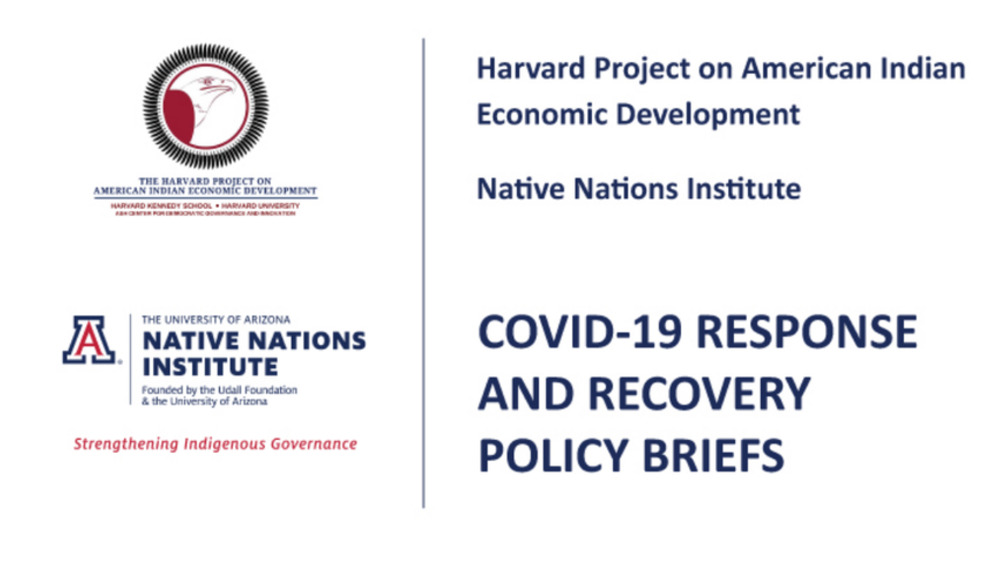
Policy Brief: Recommendations for the Allocation and Administration of American Rescue Plan Act Funding for American Indian Tribal Governments
The American Rescue Plan Act (ARPA) provides the largest infusion of federal funding for Indian Country in the history of the United States. More than $32 billion dollars is directed toward assisting American Indian nations and communities as they work to end and recover from the devastating…
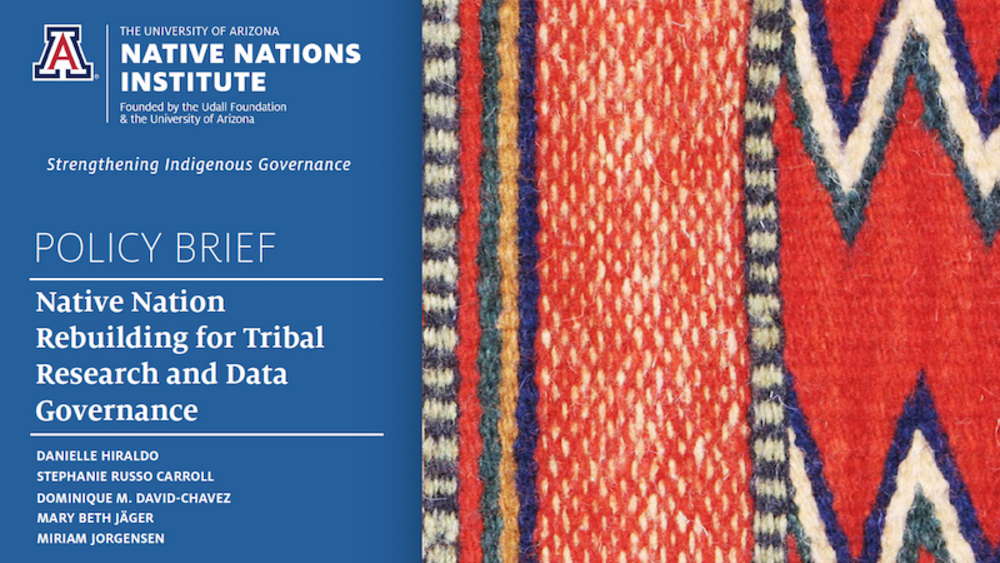
Policy Brief: Native Nation Rebuilding for Tribal Research and Data Governance
Indigenous Peoples conducted research long before their interactions with European settlers. Whether through observation or practice, research in a non-western context was woven into Indigenous ways of knowing and being. It continues to inform Indigenous Knowledges of landscapes and natural…
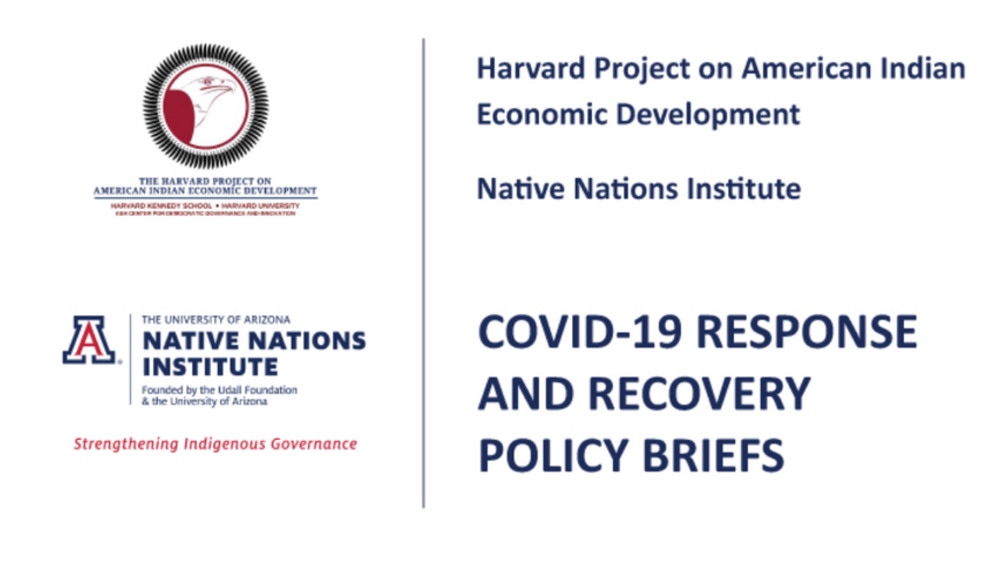
Policy Brief: Federal COVID‐19 Response Funding for Tribal Governments: Lessons from the CARES Act
The federal response to the COVID‐19 pandemic has played out in varied ways over the past several months. For Native nations, the CARES Act (i.e., the Coronavirus Aid, Relief, and Economic Security Act) has been the most prominent component of this response to date. Title V of the Act earmarked $8…
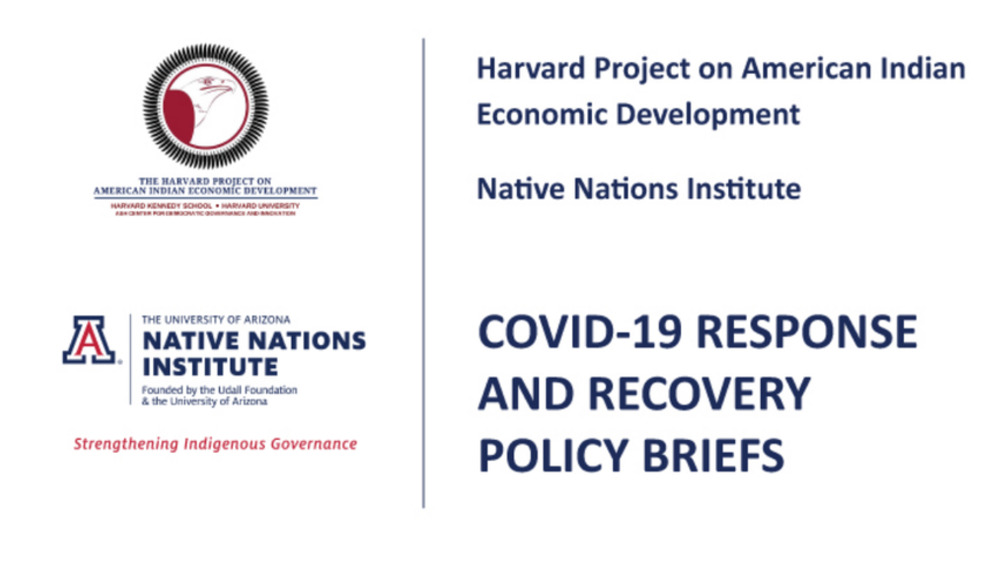
Policy Brief: Emerging Stronger than Before: Guidelines for the Federal Role in American Indian and Alaska Native Tribes’ Recovery from the COVID‐19 Pandemic
The COVID‐19 pandemic has wrought havoc in Indian Country. While the American people as a whole have borne extreme pain and suffering, and the transition back to “normal” will be drawn out and difficult, the First Peoples of America arguably have suffered the most severe and most negative…
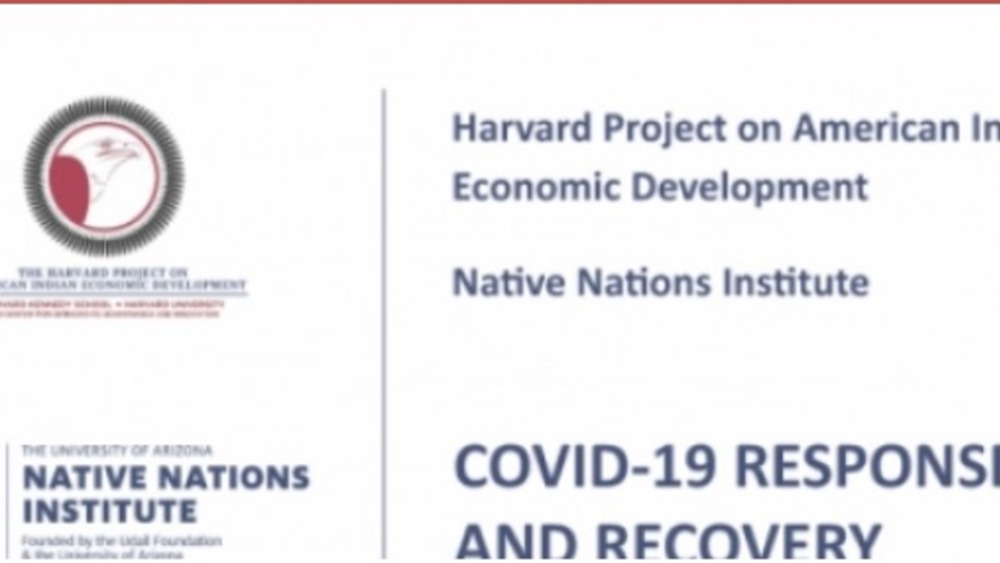
Policy Brief: The Need for a Significant Allocation of COVID‐19 Response Funds to American Indian Nations
This policy brief addresses the impact of the current COVID‐19 crisis on American Indian tribal economies, tribes’ responses to the crisis, and the implications of these impacts and actions for the US government’s allocation of crisis‐response funds to federally recognized tribes. We conclude that…
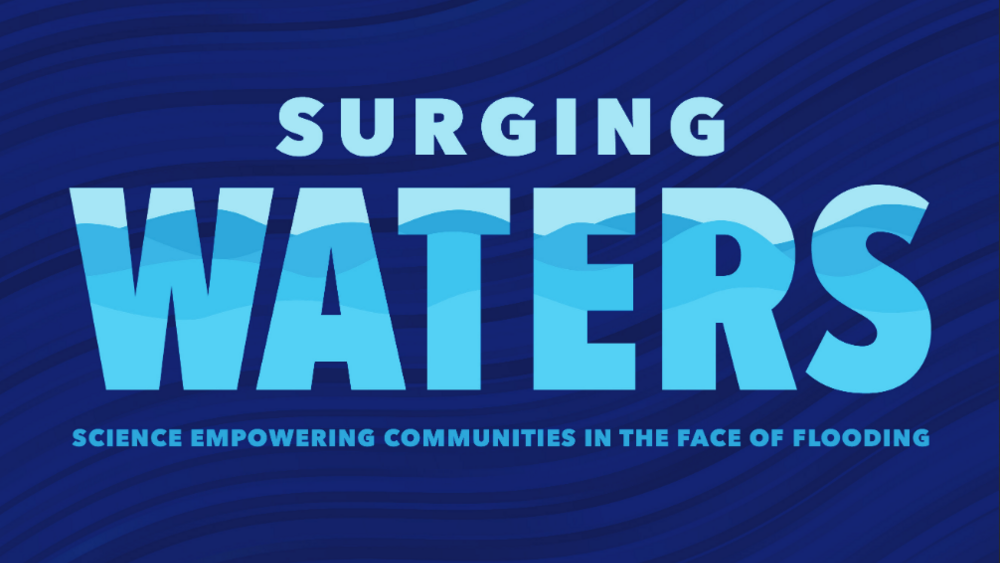
Surging Waters: Science Empowering Communities in the Face of Flooding
Surging Waters: Science Empowering Communities in the Face of Flooding is a report produced by AGU, a global not-for-profit scientific society dedicated to advancing the Earth and space sciences for the benefit of humanity. The report is reviewed by leading experts in these fields. From devastating…
